By Antoine Kaburahe and Jean-François Bastin*
Ever since 2015, polls in Burundi have been manipulated by a regime desperate to get out of the political quagmire it brought about. Each and every time, it completely failed. The constitutional referendum of May 17 has just, once again, proven this fact. We propose in this paper to revisit key background elements of last vote and lessons learnt, before addressing the consequences that appear particularly uncertain.
An Unidentified Constitutional Object
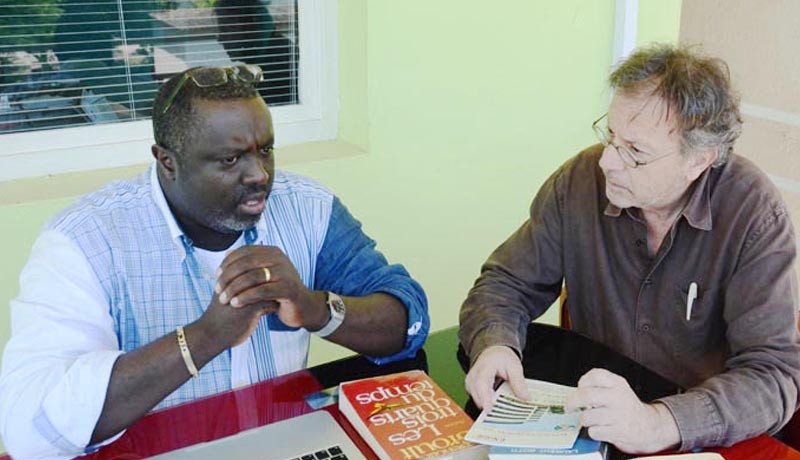
Antoine Kaburahe and Jean-François Bastin
First, the political environment and the conditions in which the referendum took place. With regard to a Constitution i.e. the theoretical foundation of democracy, great precautions must be normally established: thorough explanation of the text, widespread debate, freedom of expression, open campaign, etc. None of this happened. Burundi Constitution which was promulgated on March 18, 2005 and which is still in force provides for its revision and specifies the modalities of such an endeavour, in particular this one: “No procedure of revision shall be undertaken if it undermines national unity, the cohesion of the Burundian people, the secularity of the State, reconciliation, democracy and the integrity of the territory of the Republic “. This provision was not adhered to. On the contrary, pressure was wielded to force people to register, then vote, and vote “yes” for that matter. “No” was declared tantamount to contempt of the nation. For months, all over the country, Burundians heard only one slogan: vote yes! Otherwise … It was only intimidation, threats, sometimes murder, in short, an unbearable climate for forced consultation, in total contradiction with the most basic democratic principles. It took tremendous courage to brave such repression and dare to say no. A few political leaders and some demonstrators did it . Maybe their daring has managed to encourage some voters to go out and vote … We will come back to that later in this paper.
But the most incredible, the most mind-boggling feat in the conduct of this referendum is that its subject matter and purpose, that is to say the new constitutional text, remained virtually secret until the end. In fact, it was “published” only on May 8, i.e. 9 days before the election and 5 days after the start of the official campaign! And again, we put quotation marks to “published” as the text appeared only on the Web site of the CENI (Electoral Commission) , where it had to be thoroughly searched to be found. Indeed, no link was ever publicised or indicated, no title, no reference to any home page, even on May 8 the date of its posting on line. Even today; for one to locate it you have to click on the tab “Legal Texts” then on “Constitution of Burundi” (point 2) and finally on “Draft Constitution 2018”! A tedious labyrinth to go through to discover finally, too late, the text to approve or disapprove …
Why this mystery? The words “why” and “mystery” will come back again as we proceed. Why was the text posted on the Web site of the CENI when this constitutional revision was initiated by State House which took the initiative of the referendum as provided for by the Constitution ? It appears obvious that CENI did not do this on its own initiative, it was ordered to disseminate the text. And if CENI was given such order, it’s probably because some voices raised the issue, especially in the newspaper Iwacu. An editorial published on the 4th of May , i.e. the day after the opening of the referendum campaign, asked a simple but serious question: “Where is the text?” Is it this editorial that triggered the reaction? It’s possible. However, such late publication, carried out surreptitiously, on a single Web site, did nothing to resolve the fundamental problem of a referendum with no subject matter nor purpose. How can possibly such crucial a text be presented to Burundians though Internet only! Should we remind readers that in Burundi, like Somalia and Eritrea, less than 2% of the population has access to Internet? If opening a simple mail is often difficult and time consuming in our country, one wonders by what magic a peasant in remote Cankuzo or Mugongomanga would download a text of about 58 pages! A few days ago, on a TV show, Burundi’s Ambassador to France proudly claimed that her country was of “oral tradition”. For the CENI and State House, it seems Burundi is rather digital … Both bodies had the duty to disseminate the constitutional text in several languages, in Kirundi first and foremost, and on all the media channels accessible to the Burundian public. They did not do it. Why?
Such monumental blunder in this new attempt at constitutional revision illustrates amateurish and unprofessional work, feverish agitation, and wanton contempt for democracy. But this carelessness has its downside.
An Exercise in Futility ?
The May 17 Referendum is a resounding failure for the Burundi regime. Certainly, a new Constitution could come into force if it is now passed by Parliament as required by Article 300 of the 2005 Constitution, which is still in effect and as set out once again by Article 287 of the Constitution submitted to referendum. We will come back to this, but first of all, what will this text be worth, how will it be applied, while it contains serious contradictions and flaws? Nothing is done, the problems are just beginning for a regime that has just shot itself in the foot.
It is time to put to rest a harmful rumour, spread over media purporting that thanks to this new Constitution, Pierre Nkurunziza will be president until 2034. This reading of the text is false. It plays into the wishes and desires of this man who proclaimed, on his inauguration for the third term, that it will be the last! Quote: “We are committed to respect the decision of the Constitutional Court regarding this last term that you have just granted us” unquote.
No, nothing whatsoever in the new constitutional text authorizes a fourth and fifth term. On the contrary, in addition to making explicitly reference to the Arusha Agreement in its preamble, it reproduces word for word, under Article 97, the term limits enshrined in the Agreement: “No one shall exercise more than two consecutive terms “. A new Constitution replaces the previous one, but it does not abolish the past. It does not remove the three terms that Pierre Nkurunziza will have completed by 2020. Fifteen years of Burundian history are not erased in one stroke. The pages of textbooks have not been whitened out clean, they still exist. They attest to the reality of these three successive terms. To allow Pierre Nkurunziza to run for a fourth term, it would have been necessary to provide for special provisions in the new Constitution, in clear terms like those of 2005 . It would have been necessary to explicitly authorize the outgoing President, who has been in office since 2005, to make an exception to Article 97. In short, this flawed Constitution does not regulate anything, on the contrary: it creates confusion, it allows all ambitions, including amid CNDD-FDD power circles.
Second problem. It comes with a second obstacle for those who thought to resolve everything and all through this referendum without bothering to write a more meticulous and in-depth Constitution: the legal process required for the new text. The referendum was optional, it was only one stage on a path. It has no force of law whatsoever. As pointed out above, the draft text must now be voted on by Parliament pursuant to the 2005 Constitution, which is still in force, under Article 300: “An amendment of the Constitution or a proposal thereto shall be adopted by a majority of four-fifths of the members of the National Assembly and two-thirds of the members of the Senate.” The most astonishing fact is that such pre-requisite is reproduced as such in the new text, under Article 287. Why then? It is a great mystery. Why write again that any Constitution must be adopted by Parliament, even though the government wanted the referendum to be sufficient on its own to pass this constitutional change? And why did the regime maintain this requirement of a vote by the 4 / 5ths of the National Assembly? There are no answers to these questions. The fact is that the referendum is only indicative and we must now go to both chambers.
Nothing is done, we are in the umpteenth episode of a soap opera that is not about to end. The constitutional articles limiting the number of consecutive terms to two and requiring a vote of 4 / 5ths of MPs, the absence of an article dealing with the eligibility of the outgoing president, are all obstacles on the way to a new constitution and a “29-year term” for one man. These obstacles are all the more difficult to overcome that the May 17 vote was a snub for the regime. It wanted a triumphal plebiscite, it got a disapproval. It wanted a massive yes, overwhelming, surpassing the yes to the 2005 Constitution, and it is the opposite that happened. In 2005, the vote took place under perfectly democratic conditions, after a completely free and open campaign, in the presence of many international observers. Yes carried the day with 90.40% of the vote and the no a mere 7.58 . In 2018, under non-democratic conditions as we described at the beginning, the YES won, according to the CENI, with 73% of the votes and the NO carried 19%. For yes, it is a huge setback compared to 2005, and a great success for the no vote. To these negative votes, we can add a good part of the null and void votes, which was another way to refuse the yes. More than 20% of the voters therefore dared to oppose this act of force. It is beyond imagination.
This referendum is turning against its authors. In fact, it reveals a deep attachment of Burundian society to the Arusha compromise and its majority opposition to constitutional manipulation aimed at distorting it. Fortunately, the apprentice manipulators did their job poorly and shoddily. As a result, the Constitution they have drafted is pregnant many more setbacks. The CNDD-FDD Party does not have 4 / 5ths of the seats in the National Assembly, it is not out of the woods.
In 2018 as in 2015, the electoral tool turned out to be very difficult to handle. The image of the Burundian regime comes out as even more tarnished. And it is not the ban of two international radio stations, the VOA and the BBC, a few days before the vote, sounding like an ultimate admission of guilt that will improve its image in the eyes of the world.

*Antoine Kaburahe founder and Director of the Iwacu Press Group is a journalist, writer and publisher. He has followed Burundian politics for more than 25 years. Contact : [email protected]
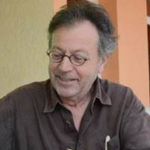 *Jean François Bastin spent most of his career at the Belgian official Television, RTBF, for which he covered many African conflicts, including those of Rwanda and Burundi. Retired since 2004, he has conducted several training missions for Burundi media, including Iwacu.
*Jean François Bastin spent most of his career at the Belgian official Television, RTBF, for which he covered many African conflicts, including those of Rwanda and Burundi. Retired since 2004, he has conducted several training missions for Burundi media, including Iwacu.
In 2014, the two journalists co-authored the book “Five Years of Reflections (2008-2013)” published in 2014 by Iwacu Editions.

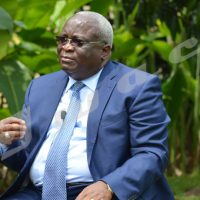
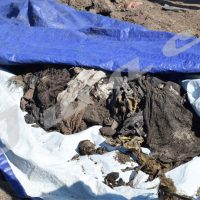
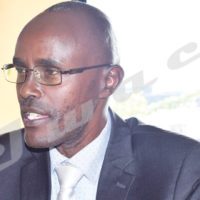
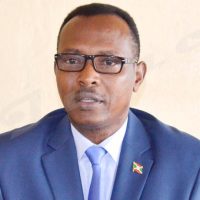
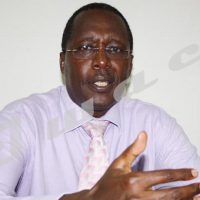













 IWACU Open Data
IWACU Open Data

